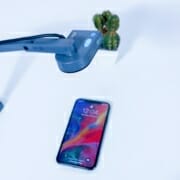Launching a New Product? 11 Reasons to Have a Mobile App
The product life cycle stages provide a benchmark for understanding the product development process. The product life cycle stages include a market introduction, market growth, market maturity, and market decline.
The different stages of a product’s lifecycle pose discrete challenges. The commonly cited challenges with launching a new product include ideation, product roadmap problems, market viability, workflow management, product engineering issues, and the pace of innovation.
So, when launching a new product, you want to be careful not to miss out on any vital points that may affect its adoption. A mobile app is critical for launching a new product, be it software, hardware, consumer electronics, or merchandise.
Mobile apps allow brands and business leaders to actively connect and engage with their target audiences, building the base for future business. Mobile apps provide an interaction platform, connecting prospective customers (and markets) with brand owners.
So, here are eleven reasons to have a mobile app when launching a new product:
1. Customer loyalty
Enterprises operating in competitive market landscapes must go an extra mile to remain visible and competitively positioned. For brands starting in fresh markets, it’s important to think of something to stand out: a gem that distinguishes you from the rest.
Mobile apps can offer start-ups and brands leverage when launching a new product. For instance, apps can lead to repeat business and bolster referrals. In addition, apps can foster new product and service adoption, especially when users share promotions, new products, and new deals.
There’s no doubt that your brand can accurately forecast long-term business outcomes when it has a loyal customer base. So, aim for a well-designed and customized app for your target customers. When launching products, this app may make a difference between a successful product launch and a failure!
2. Improved communication
Mobile apps act as crucial avenues for marketing communication. With mobile apps, you don’t have to overburden your email support because you have an extra communication channel.
In essence, mobile apps can communicate to a wide range of stakeholders, internal and external. With tailored communication and strategic response forums, mobile apps provide the convenience and flexibility of responding on the go. So, regardless of whether you’re catching a flight or traveling by train, you can always follow up on crucial office proceedings with a mobile app.
3. Marketing outreach
Mobile apps are indisputably the best single source of marketing truth. With mobile apps, you don’t have to worry about reaching hundreds, maybe thousands of potential customers, brands, partners, and suppliers. You can do that at a go.
Mobile apps afford enterprises and brands the flexibility, convenience, and agility of connecting with markets and other brands. It’s through mobile apps that you can foster your marketing outreach. Today, most consumers are connected to digital mobile platforms, making mobile a frontier in marketing communications.
4. Online shopping
When launching a new product, brands specify authorized suppliers, including stores, malls, shops, and hypermarkets that stock these specific products. Unfortunately, traditional product launches relied on complex supply chain lines.
The unpredictability and uncertainty of global supply chains continue to impede successful product marketing and distribution. Mobile apps are bridging this gap by offering online shopping options. So, when launching a new product (or service), your mobile app can be utilized as a distribution frontier.
The digitization of supply chain downstream activities has made it easier for brands to connect with customers. Digitizing distribution, sourcing, and supply continue to close gaps between production and consumption, making production and manufacturing seamless and surprisingly rewarding.
5. Brand image
Mobile apps improve brand image by offering interactive and intuitive interfaces to display products. In addition, mobile apps encompass diverse audiences and outreach, enabling emerging brands to reach a diverse audience. Product launches that use mobile apps experience better brand images because of accessibility, outreach, and product scope.
6. Customer visibility
Mobile apps are critical tools for obtaining insightful and actionable feedback, including customer behavioral patterns. Evaluating customer feedback and use patterns is a primary part of launching a new product. However, few brands and enterprises can successfully collect, collate, and report customer behavior to improve product launches and adoption levels.
Mobile apps allow you to collect insightful metrics: customer use patterns, pricing options, user behavior, market adoption, and competition levels. With mobile apps, you can gather and record customer responses, and obtain nifty product usage metrics, including product defects, failures, and inefficiencies.
7. Employee loyalty
There’s no doubt that workplaces are evolving with new technologies – blockchain, virtualization, cloud computing, artificial intelligence, automation, and robotics. The desire for employees to learn, adapt and evolve with time is propelled by new technologies that help organizations automate their workplaces.
Unfortunately, not all organizations are undertaking improvements in technology adoption. Published research shows that employees exposed to new, exciting technologies are more loyal and committed. In addition, the study shows that workplaces that adopt modern equipment, technology, and processes enjoy better employee loyalty.
8. Omnichannel shopping approach
Brands and enterprises are using the omnichannel shopping approach to give customers a seamless shopping experience across all their devices – smartphones, laptops, tablets, smartwatches, and smart TVs.
Omnichannel access lets customers shop remotely. This is because customers can access products on-the-go through smartphone devices. With omnichannel access, customers can shop for products online using their mobile phones. Mobile apps reinforce omnichannel shopping, helping customers access products without visiting stores.
9. Customer relationship management
The customer relationship management domain is forever changing. The emergence of technical support software and remote helpdesk support has changed the face of traditional CRM.
However, the most disruptive technology in the customer relationship management domain is the mobile app. The mobile app connects people, places, and platforms. Its interoperability with other channels, including digital social channels, volatility, and versatility make mobile apps critical for connecting customers with technical support teams.
So, when launching a new product, you must view an app as a strategic tool for managing your customer relationships. Brands and organizations are leveraging mobile apps to foster their approach to customer relations. Mobile apps help CRM personnel handle inquiries, process complaints, report issues, and provide timely resolutions.
10. Employee training
Human resources face the challenge of providing upgraded training and learning materials to employees, especially when introducing them to new products, technology, or markets.
However, you can eliminate these challenges by using e-learning apps that allow employees to learn about new products, new work models, and methodologies.
E-learning mobile apps like Udemy, Skill Pill, and BoostHQ ensure that employees have access to similar learning materials, regardless of where they’re. So, when launching a new product, a mobile app can streamline the process of educating your workforce on the ins and outs of the product.
11. Fostering employee commitment
The Technology Acceptance Model TAM terms usefulness and ease of use as the two most important factors for successful tech adoption. Your employees or customers will uptake your new product if it’s easy to use and functional or practical to them.
When launching a new product, foster your workforce’s commitment with a mobile app. By deploying a mobile app, you show your employees that you care about modernizing your workplace.
Improving your employee commitment will go a long way in accelerating the adoption and use of a new product. As a result, it’s advisable not to decouple employee engagement from the product initiation and adoption processes.
NS804 – Transforming Enterprises with Mobile Apps
NS804 provides custom-built mobile apps. NS804 designs and deploys functional, easy-to-use mobile apps that answer the trickiest question your business has to ask.
So, if you’re looking to create your first mobile app, don’t hesitate.
Contact NS804 for quotations and inquiries about your next project.

 https://unsplash.com/photos/XvS-uKUoUao
https://unsplash.com/photos/XvS-uKUoUao










Leave a Reply
Want to join the discussion?Feel free to contribute!